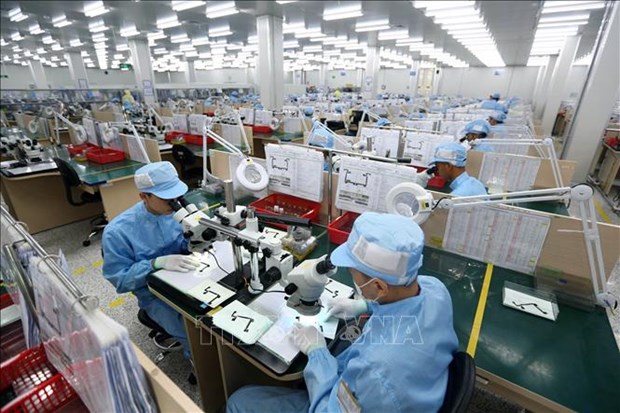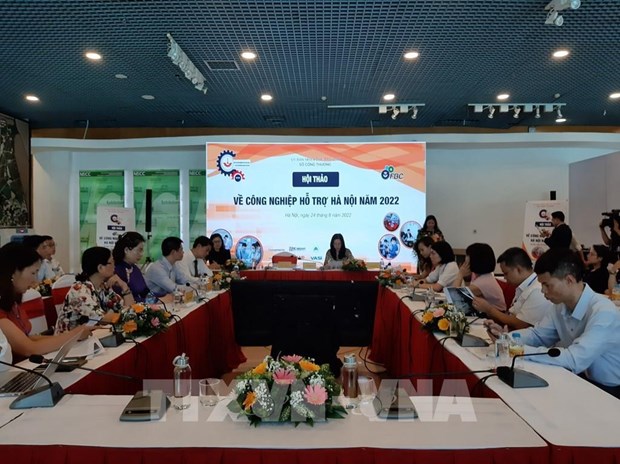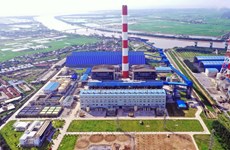Hanoi seeks measures to propelling supporting industries
Over the years, Hanoi has recorded encouraging outcomes after years of implementing many programmes, plans, mechanisms and policies for supporting industry development, as heard at a conference held in the capital city on August 24.
 Illustrative photo (Source: VNA)
Illustrative photo (Source: VNA)The event, organised by the municipal Department of Industry and Trade, focused on Hanoi’s supporting industries, gathering a large number of managers, policy makers, scientists, and businesses.
According to a representative from the department, enterprises in the local sector has seen a continuous increase in their quantity, scale and quality. Most of them operate to produce components and spare part; products serving garment-textile and footwear manufacturing; and those serving the high-tech industry. A significant number of firms boasts production systems and products meeting international standards, which makes them capable of joining the global supply chains of multinational conglomerates.
However, because the capital’s supporting industries in Hanoi and Vietnam were formed and developed later than that of other nations in the region, their growth process requires right orientations, mechanisms, policies and solutions that are strong enough to keep pace with other countries regionally and globally.
At the workshop, the delegates focused on discussing three main topics of localisation needs and the adaptation of domestic enterprises; digital transformation in production; and innovation trends given participation in the global supply chain.
From the discussion, the city’s related potential and demand for growth were presented, with solutions to its shortcomings and policies for its supporting industry development proposed.
 At the event (Photo: VNA)
At the event (Photo: VNA)The growth of the sector contributes to well exploiting resources, reducing imports; limiting the export of resources and raw processed products; increasing value added of industrial products; expanding the ability to attract foreign direct investment; and developing a system of small and medium enterprises, she added.
Dr. Pham Xuan Khanh from the Hanoi Vocational College of High Technology, said currently, the competitiveness of Vietnamese youth when participating in the regional and international labour market is still limited. Vietnam's trained human resources are mainly located in the processing and assembly stage of the production and business chain, while the number of highly qualified employees remains modest, he added.
In order to train the workforce to meet the demand of the labour market in the new situation, Khanh recommended that Vietnam need to standardise and develop the quality of teachers and administrators; renew training according to the smart school model; improve the input quality of admissions; and strengthen the connection between training and businesses.
The country's supporting industry, which remained underdeveloped and overly reliant on imports, has been identified as a major weakness for Vietnam, especially in key industries such as electronics, textile, leather and footwear, manufacturing and automobile.
The Ministry of Industry and Trade (MoIT) has set a target that the supporting industry's capacity will meet 70% of domestic demand by 2030.
The target is part of a draft project on restructuring the industry and trade sector for 2021-2030.
The draft also aims to turn Vietnam into an industrialised country with highly competitive industries, and among the world's top 15 exporters by the end of 2030.
The country's immediate target is to develop 20 products with strong international brands, to strengthen its position in the global supply chain, and to bring the localisation of production to 45%./.













